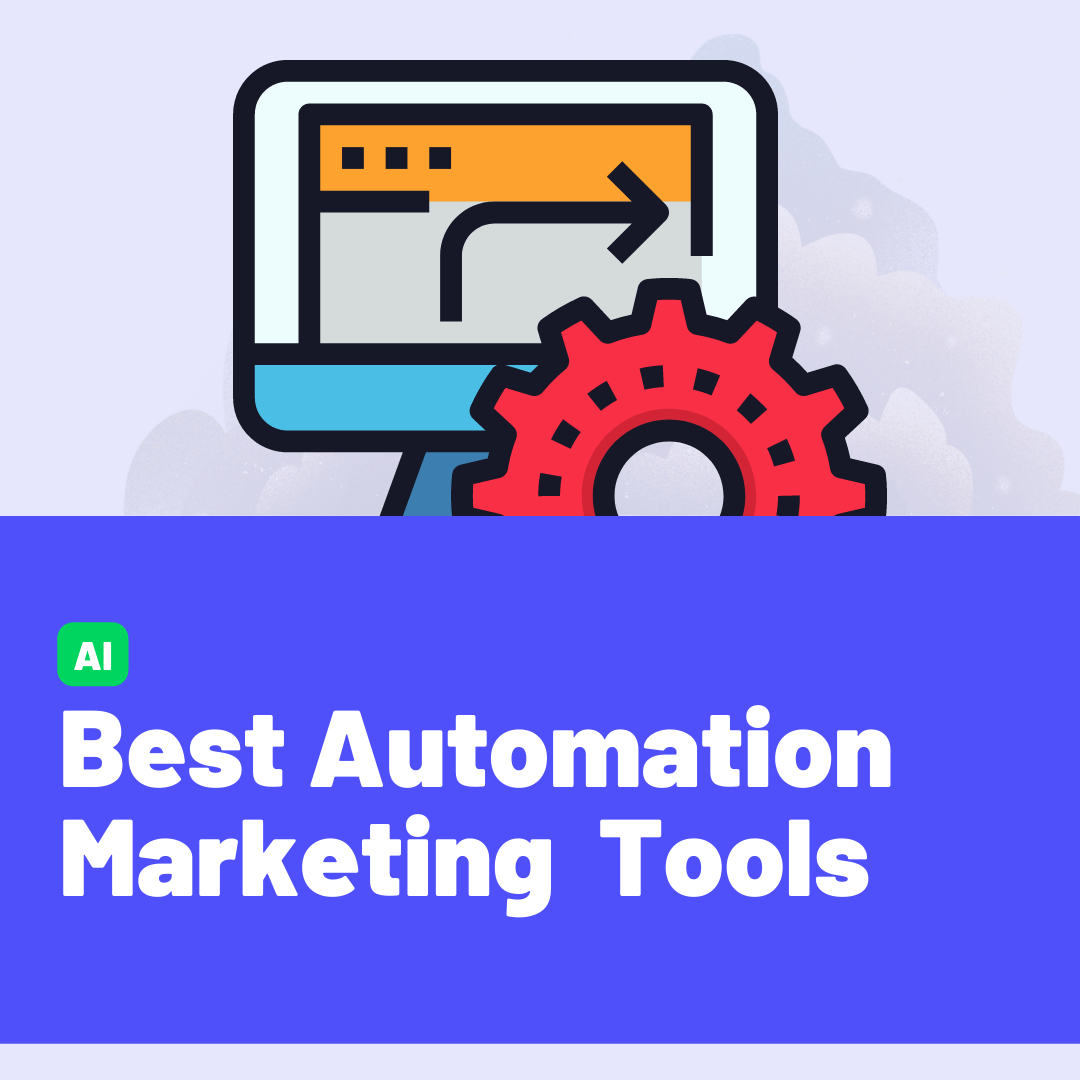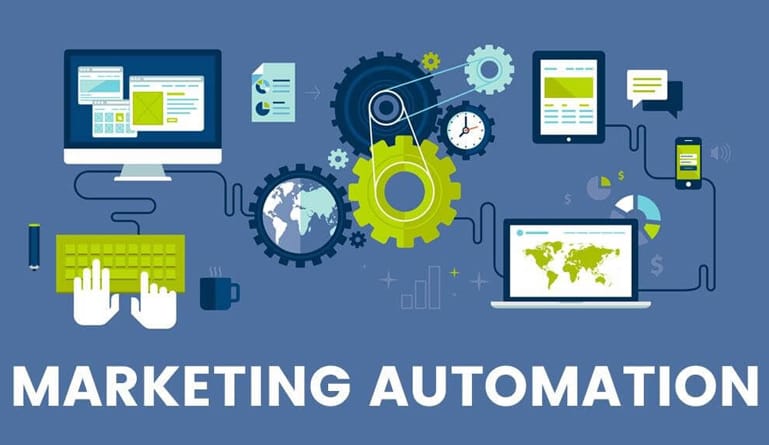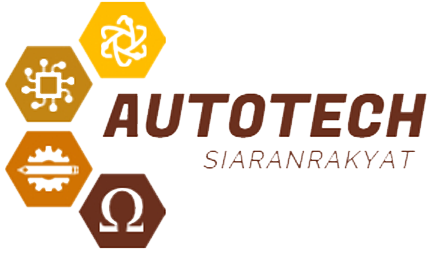AI tools for marketing automation are revolutionizing how businesses connect with their audiences. No longer are marketing campaigns solely reliant on manual processes; instead, sophisticated algorithms analyze vast datasets to personalize experiences, predict customer behavior, and optimize results with unprecedented precision. This exploration delves into the capabilities of AI in automating various marketing functions, from lead generation to content creation and social media engagement, ultimately demonstrating how businesses can leverage these tools for significant growth.
This detailed examination covers the core principles of marketing automation, showcasing how AI integration enhances traditional strategies. We’ll explore practical applications across various marketing channels, including lead nurturing, content personalization, and social media management. We will also address the ethical considerations and future trends associated with this rapidly evolving field, providing a comprehensive overview for both seasoned marketers and those new to this transformative technology.
Defining Marketing Automation & AI Integration

Marketing automation streamlines repetitive marketing tasks, allowing businesses to nurture leads, personalize communications, and ultimately boost efficiency and ROI. It involves using software to automate various marketing processes, from email campaigns and social media posting to lead scoring and segmentation. The core principle is to leverage technology to improve the effectiveness and scale of marketing efforts, freeing up human resources for more strategic initiatives.
AI significantly enhances traditional marketing automation by adding intelligence and predictive capabilities. Instead of simply automating pre-defined tasks, AI-powered systems can analyze vast amounts of data to personalize customer experiences, predict future behavior, and optimize campaigns in real-time. This leads to more targeted messaging, improved conversion rates, and a deeper understanding of customer preferences.
AI-Powered Marketing Automation Tools
Several tools currently leverage AI to enhance marketing automation capabilities. These platforms often integrate multiple functionalities, such as email marketing, social media management, CRM integration, and advanced analytics. The level of AI integration varies, with some tools offering basic predictive capabilities while others utilize sophisticated machine learning algorithms for highly personalized experiences.
Examples include HubSpot, which uses AI to personalize email content and suggest optimal send times; Marketo, offering predictive lead scoring and campaign optimization; and Adobe Experience Cloud, providing AI-driven customer journey mapping and personalized content recommendations. These are just a few examples; many other platforms offer varying degrees of AI-powered marketing automation.
Comparison of AI Marketing Automation Platforms
The following table compares three popular AI-powered marketing automation platforms based on key features and pricing models. Note that pricing can vary significantly based on the number of users, contacts, and specific features utilized.
| Feature | HubSpot | Marketo | Adobe Experience Cloud |
|---|---|---|---|
| Email Marketing | Yes, with AI-powered personalization | Yes, with advanced segmentation and automation | Yes, integrated with other marketing tools |
| Lead Scoring & Management | Yes, including predictive lead scoring | Yes, with sophisticated predictive modeling | Yes, with robust analytics and reporting |
| Social Media Management | Basic integration and scheduling | Limited integration | Extensive integration and analytics |
| CRM Integration | Seamless integration with HubSpot CRM | Integrates with various CRMs | Integrates with Adobe CRM and other systems |
| Pricing Model | Subscription-based, tiered pricing | Subscription-based, enterprise-level pricing | Subscription-based, modular pricing |
AI-Driven Lead Generation & Qualification

AI is revolutionizing lead generation and qualification, moving beyond traditional methods to deliver more efficient and effective results. By leveraging machine learning and predictive analytics, businesses can identify, prioritize, and nurture leads with unprecedented accuracy, ultimately boosting conversion rates and maximizing ROI. This enhanced precision allows marketing teams to focus their efforts on the most promising prospects, streamlining the sales funnel and improving overall efficiency.
AI’s role in identifying and scoring potential leads is multifaceted. It analyzes vast datasets, including website activity, social media engagement, and CRM data, to create detailed lead profiles. This analysis goes beyond simple demographics; AI algorithms identify behavioral patterns and predict the likelihood of a lead converting into a customer. This predictive scoring enables marketers to prioritize high-potential leads, ensuring that sales and marketing resources are allocated strategically.
AI-Powered Lead Identification and Scoring
AI algorithms analyze various data points to identify potential leads. This includes website traffic data (e.g., pages visited, time spent on site, downloads), social media activity (e.g., engagement with brand content, comments, shares), and CRM data (e.g., past interactions, purchase history). Machine learning models then assign a score to each lead based on their predicted likelihood of conversion. For instance, a lead who frequently visits product pages, downloads white papers, and engages actively on social media might receive a higher score than a lead who only visited the homepage briefly. This scoring system allows marketing teams to prioritize their outreach efforts, focusing on the most promising leads.
AI-Driven Personalization of Lead Nurturing Campaigns
Personalization is key to effective lead nurturing. AI enables highly targeted and customized messaging by analyzing individual lead profiles and preferences. For example, AI can automatically tailor email content based on a lead’s industry, role, and past interactions. This personalized approach increases engagement and improves the chances of conversion. A lead interested in a specific product feature will receive emails highlighting that feature, while a lead focused on cost-saving solutions will receive different content. This level of personalization ensures that marketing messages resonate with each individual lead, maximizing their effectiveness.
AI’s Enhancement of Lead Qualification Processes
AI significantly streamlines and improves lead qualification. By analyzing lead behavior and data, AI can identify leads that meet specific criteria for qualification, automatically moving them through the sales funnel. This automation reduces manual effort and ensures that sales teams only focus on qualified leads ready for a sales conversation. For example, AI can automatically identify leads who have visited pricing pages, requested demos, or filled out contact forms with specific information, signaling their readiness to purchase. This automated qualification process significantly improves sales efficiency and increases conversion rates.
Workflow Diagram: AI-Powered Lead Generation and Qualification
Imagine a flowchart. The process begins with Data Collection: various sources (website analytics, CRM, social media) feed data into an AI engine. This leads to Lead Identification & Scoring: the AI analyzes the data, identifying potential leads and assigning them a score based on their likelihood to convert. Next is Lead Segmentation: leads are grouped based on their scores and other characteristics. Then comes Personalized Nurturing: automated email sequences and targeted content are delivered to each segment. Finally, Lead Qualification & Handoff: qualified leads are automatically flagged and passed to the sales team. This entire process is iterative, with feedback loops allowing the AI to continuously learn and improve its accuracy.
AI for Customer Segmentation & Targeting
AI is revolutionizing customer segmentation and targeting, allowing marketers to move beyond broad demographic categories and create highly personalized experiences that resonate with individual customers. This precision targeting not only improves campaign effectiveness but also fosters stronger customer relationships and boosts overall ROI. By leveraging the power of machine learning, businesses can unlock valuable insights hidden within their data, leading to more effective marketing strategies.
AI algorithms analyze vast quantities of customer data, identifying intricate patterns and relationships that would be impossible for humans to discern manually. This allows for the creation of granular customer segments based on a multitude of factors, going far beyond simple demographics. The result is a more nuanced understanding of customer behavior, preferences, and needs, leading to more targeted and effective marketing campaigns.
Key Customer Segments Benefiting from AI-Driven Marketing
Businesses across various sectors benefit from AI-driven customer segmentation. However, some industries see particularly significant advantages. E-commerce businesses, for example, can use AI to identify high-value customers, those prone to churn, and those likely to respond to specific promotions. Similarly, subscription-based services can leverage AI to predict customer lifetime value and tailor retention strategies accordingly. Financial institutions can use AI to identify customers most likely to take out specific loans or investments. In each case, AI enhances the precision of targeting, optimizing resource allocation and improving campaign performance.
AI Algorithm Analysis of Customer Data for Improved Targeting
AI algorithms, particularly machine learning models like clustering and classification algorithms, are instrumental in analyzing customer data for improved targeting. Clustering algorithms, such as K-means, group similar customers together based on shared characteristics like purchase history, website behavior, and demographics. Classification algorithms, such as logistic regression or support vector machines, predict the likelihood of a customer taking a specific action, such as making a purchase or responding to a promotion. These algorithms identify patterns and correlations within the data, allowing marketers to segment customers with remarkable accuracy and personalize their marketing efforts. For instance, an e-commerce company might use AI to identify customers who frequently browse a particular product category but haven’t made a purchase. This allows them to target these customers with personalized recommendations or targeted promotions to encourage conversion.
Methods for Creating Hyper-Personalized Marketing Messages with AI
AI facilitates the creation of hyper-personalized marketing messages through several methods. Natural Language Processing (NLP) enables the automation of personalized email subject lines and body text, tailoring the message to individual customer preferences and past interactions. Recommendation engines, powered by collaborative filtering and content-based filtering algorithms, suggest products or services based on individual customer behavior and preferences. Dynamic content personalization allows for the real-time adjustment of website content, ads, and email messages based on individual customer profiles and browsing behavior. For example, a travel website could use AI to personalize recommendations based on a customer’s past travel history, preferred destinations, and budget.
AI-Powered Customer Segmentation Process
The following flowchart illustrates a typical AI-powered customer segmentation process:
[Flowchart Description] The flowchart begins with “Data Collection,” encompassing all customer data (demographics, purchase history, website activity, etc.). This feeds into “Data Cleaning & Preprocessing,” where data is cleansed and prepared for analysis. Next, “Feature Engineering” extracts relevant features from the data for effective segmentation. Then, “AI Algorithm Selection” involves choosing appropriate algorithms (e.g., K-means clustering, decision trees) based on the data and business goals. “Model Training & Evaluation” refines the chosen algorithm and assesses its performance. Finally, “Customer Segmentation & Targeting” delivers distinct customer segments ready for targeted marketing campaigns. The process may iterate as new data becomes available, constantly refining segmentation and improving campaign effectiveness.
AI tools are revolutionizing marketing automation, offering businesses powerful capabilities for personalized campaigns and efficient lead nurturing. Many of these sophisticated AI marketing tools are often deployed on a Platform as a Service (PaaS) , leveraging the scalability and flexibility of cloud infrastructure. This allows companies to focus on optimizing their AI-driven marketing strategies without worrying about complex infrastructure management.
Predictive Analytics in Marketing Automation: AI Tools For Marketing Automation
Predictive analytics, powered by AI, significantly enhances marketing automation by leveraging historical data and machine learning algorithms to forecast future outcomes. This allows marketers to make data-driven decisions, optimize campaigns, and ultimately improve ROI. Instead of relying on intuition or guesswork, businesses can proactively adapt their strategies based on predicted trends and customer behaviors.
AI-powered predictive analytics informs marketing decisions by analyzing vast datasets encompassing customer interactions, demographics, purchase history, website behavior, and more. These analyses identify patterns and correlations that would be impossible to discern manually, providing insights into customer preferences, potential churn risks, and optimal campaign strategies. This leads to more targeted, personalized, and effective marketing efforts.
Predictive Analytics for Campaign Performance Forecasting
Predictive analytics enables businesses to forecast the likely success of marketing campaigns before launch. By analyzing past campaign data, including ad performance, email open rates, click-through rates, and conversion rates, alongside external factors like seasonality and economic indicators, AI algorithms can predict key metrics such as click-through rates, conversion rates, and ultimately, ROI. For example, a clothing retailer might use predictive analytics to forecast the effectiveness of a new back-to-school campaign by analyzing past sales data, website traffic patterns during similar periods, and the effectiveness of similar campaigns in previous years. The model could predict a likely conversion rate and the total revenue generated, allowing for informed budget allocation and resource planning.
Predictive Analytics for Customer Churn Prediction, AI tools for marketing automation
Customer churn, the loss of customers over time, is a significant concern for many businesses. Predictive analytics can identify customers at high risk of churning by analyzing their behavior and engagement patterns. For instance, a decrease in website visits, reduced purchase frequency, or negative feedback might signal an impending churn event. By identifying these at-risk customers, marketers can implement targeted retention strategies, such as personalized offers, loyalty programs, or proactive customer support, to reduce churn rates and increase customer lifetime value. A telecommunications company, for example, might use predictive analytics to identify subscribers likely to switch providers based on their call volume, data usage patterns, and customer service interactions. This allows them to proactively offer retention incentives, such as discounted plans or bundled services.
Case Study: Predictive Analytics and Marketing ROI
Imagine a subscription-based online learning platform. Using predictive analytics, they analyzed historical data on student engagement, course completion rates, and subscription renewals. The AI model identified specific student segments at high risk of canceling their subscriptions. The platform then implemented targeted interventions, such as personalized email campaigns offering additional support or discounted renewals, specifically for those at-risk students. The result was a 15% reduction in churn rate within the next quarter, directly translating to a 10% increase in overall revenue and a significant improvement in customer lifetime value. This demonstrates the direct impact of predictive analytics on boosting marketing ROI by optimizing resource allocation and improving customer retention strategies.
Ethical Considerations of AI in Marketing Automation
The increasing sophistication of AI in marketing automation necessitates a parallel increase in our understanding and application of ethical principles. Failing to address these ethical considerations can lead to reputational damage, loss of customer trust, and even legal repercussions. This section explores key ethical challenges and provides guidance for responsible AI implementation in marketing.
Potential Biases in AI Algorithms and Mitigation Strategies
AI algorithms are trained on data, and if that data reflects existing societal biases (e.g., gender, racial, socioeconomic), the algorithm will likely perpetuate and even amplify those biases. For instance, an AI-powered ad targeting system trained on historical data showing higher conversion rates from a specific demographic might unfairly exclude other groups, leading to discriminatory marketing practices. Mitigation strategies involve carefully auditing the training data for biases, employing diverse and representative datasets, and regularly testing the AI system for fairness and equity. Techniques like algorithmic fairness and explainable AI (XAI) can also help identify and correct biases. Regular monitoring and adjustments are crucial to ensure the AI remains unbiased over time.
Data Privacy and Security Best Practices in AI Marketing
Protecting customer data is paramount. AI marketing often relies on vast amounts of personal information, making data breaches and misuse particularly damaging. Best practices include implementing robust data encryption, access control measures, and anonymization techniques. Compliance with regulations like GDPR and CCPA is essential. Transparency with customers about data collection and usage is also crucial for building trust. Regular security audits and penetration testing can identify vulnerabilities before they are exploited. Moreover, selecting AI vendors with strong data security protocols and certifications is a key step in mitigating risks.
Transparency and Accountability in AI-Driven Marketing
Transparency and accountability are essential for building trust and fostering responsible AI use. Customers should understand how AI is being used to personalize their experience and what data is being collected. This includes clearly explaining the logic behind AI-driven recommendations and decisions. Accountability involves establishing clear lines of responsibility for AI-related outcomes. This means having processes in place to investigate and address any ethical concerns or complaints arising from AI-driven marketing activities. Regular audits and impact assessments can help ensure that AI is being used responsibly and ethically.
Ethical Guidelines for Using AI in Marketing Automation
Implementing ethical AI requires a proactive approach. A robust framework should be established, including:
- Fairness and Non-discrimination: Ensure AI systems treat all individuals equitably, avoiding discriminatory practices based on protected characteristics.
- Privacy and Security: Prioritize data privacy and security, complying with all relevant regulations and employing robust security measures.
- Transparency and Explainability: Be transparent about how AI is used in marketing and provide clear explanations of AI-driven decisions.
- Accountability and Oversight: Establish clear lines of responsibility and implement mechanisms for monitoring and addressing ethical concerns.
- Human Oversight: Maintain human oversight of AI systems, ensuring that human judgment is involved in critical decisions.
- Continuous Monitoring and Improvement: Regularly assess the ethical implications of AI systems and make improvements as needed.
In conclusion, AI tools are no longer a futuristic concept but a powerful reality shaping the landscape of marketing automation. By embracing these intelligent solutions, businesses can unlock significant improvements in efficiency, personalization, and ultimately, return on investment. While ethical considerations and responsible data handling remain paramount, the potential benefits of AI-driven marketing automation are undeniable, paving the way for more targeted, effective, and engaging customer experiences in the years to come. The future of marketing is intelligent, and those who adapt will thrive.
AI tools are revolutionizing marketing automation, streamlining processes and improving efficiency. The scalability required for these sophisticated systems often benefits from a flexible infrastructure, such as a Hybrid cloud solution, which combines public and private cloud resources. This allows marketing teams to leverage the power of AI while maintaining control over sensitive data and ensuring optimal performance for their automation workflows.
